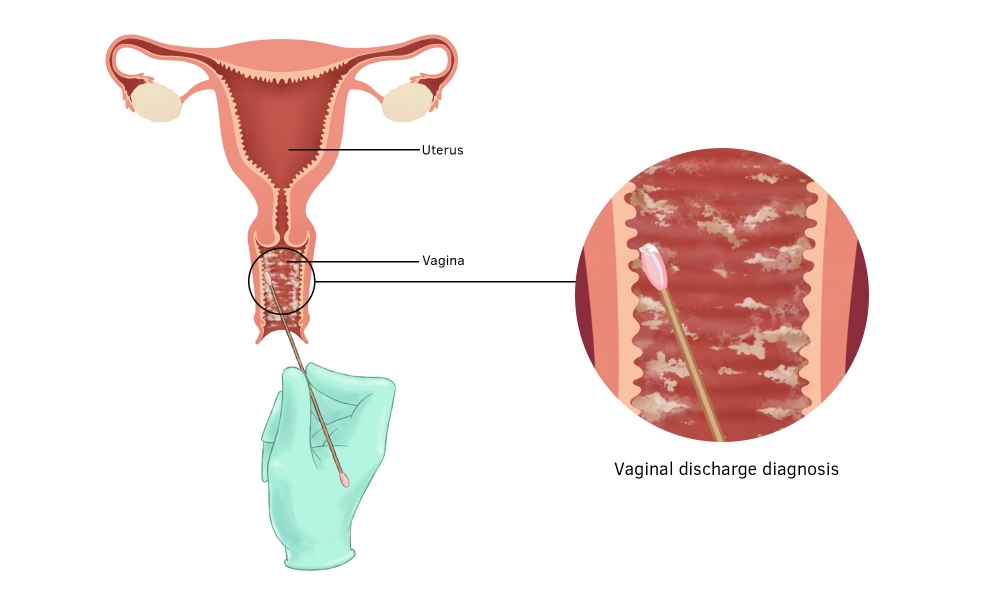Congratulations! You’re thinking about starting a family. This is an exciting time, filled with dreams and anticipation. But before you embark on your pregnancy journey, consider taking a proactive step towards a healthy outcome: pre-pregnancy counselling.
Pre-pregnancy counselling, also known as preconception counselling, is a vital first step for couples planning to conceive. It’s a confidential meeting with a healthcare professional, often an obstetrician-gynaecologist (OB-GYN) or a maternal-fetal medicine (MFM) specialist. During this session, you’ll discuss various aspects of pregnancy preparedness, aiming to optimize your health and the health of your future baby.

Why is Pre-pregnancy Counseling Important?
While prenatal care, the care you receive during pregnancy is crucial, pre-pregnancy counselling lays the groundwork for a smoother and healthier pregnancy. Here’s how:
- Reduces Risk of Complications: By identifying potential risks associated with pre-existing medical conditions, family history, or lifestyle habits, pre-pregnancy counselling allows for early intervention or adjustments to minimize complications during pregnancy.
- Improves Fetal Health: Optimizing your health before conception can significantly improve the chances of a healthy pregnancy and reduce the risk of birth defects.
- Informed Decisions: Pre-pregnancy counselling empowers you with knowledge about various aspects of pregnancy, childbirth, and newborn care. This information allows you to make informed decisions throughout the process.
- Emotional Well-being: The emotional journey of pregnancy can be as important as the physical one. Pre-pregnancy counselling provides a safe space to discuss anxieties, expectations, and concerns, fostering a positive emotional state as you embark on parenthood.
What Happens During Pre-pregnancy Counseling?
A typical pre-pregnancy counselling session involves a comprehensive discussion and assessment. Here’s a breakdown of what to expect:
- Medical History Review: Your healthcare provider will review your medical history, including past pregnancies (if any), any chronic health conditions, current medications, and surgeries. They will also discuss your partner’s medical history, as certain conditions can impact pregnancy.
- Family History: Understanding your family’s medical history, both sides, can help identify any potential genetic risks that might affect your baby.
- Lifestyle Habits: Your diet, exercise routine, alcohol consumption, smoking habits, and any use of recreational drugs will be discussed. The counsellor will guide you on making healthy lifestyle adjustments to optimize your health for pregnancy.
- Vaccinations: Pre-pregnancy counselling is an excellent time to ensure you’re up-to-date on essential vaccinations like rubella and measles, mumps, and rubella (MMR) which can prevent serious birth defects.
- Nutrition & Prenatal Vitamins: Proper nutrition is essential for a healthy pregnancy. Your counsellor will discuss dietary recommendations and may suggest prenatal vitamins to address any potential nutritional deficiencies.
- Weight Management: Being at a healthy weight before conception can improve pregnancy outcomes. The counsellor will discuss weight management strategies if needed.
- Genetic Testing: Depending on your family history or concerns, genetic testing might be recommended to identify the risk of passing on certain genetic conditions to your child.
Who Should Consider Pre-pregnancy Counseling?
Pre-pregnancy counselling is beneficial for all couples planning to conceive. However, it’s particularly recommended for:
- Couples with a family history of genetic disorders
- Women with pre-existing medical conditions
- Women over 35 years old
- Couples who have struggled with infertility
- Couples with concerns or anxieties about pregnancy
Benefits of Pre-pregnancy Counseling
The benefits of pre-pregnancy counselling extend far beyond simply preparing for conception. Here’s how it can positively impact your journey:
- Increased Pregnancy Success Rates: Preconception counselling can help identify and address potential fertility issues, leading to a higher chance of successful conception.
- Reduced Risk of Birth Defects: By optimizing your health and addressing potential risks beforehand, you can significantly reduce the risk of birth defects.
- Improved Maternal Health: Pre-pregnancy counselling can help identify and manage pre-existing medical conditions, leading to a healthier pregnancy for the mother.
- Reduced Risk of Pregnancy Complications: Early detection and management of potential risk factors can minimize pregnancy complications.
- Informed Decision-Making: You’ll be equipped with the knowledge and confidence to make informed decisions throughout pregnancy and parenthood.
- Reduced Stress and Anxiety: Open communication with a healthcare professional can alleviate anxieties and concerns, leading to a more positive and stress-free pregnancy experience.
Preparing for Your Pre-pregnancy Counseling Session: A Checklist for Success
To make the most of your pre-pregnancy counselling session, here’s a helpful checklist:
- Gather Information: Make a list of any questions or concerns you have about pregnancy, childbirth, or newborn care.
- Medical Records: If you have any pre-existing medical conditions, gather copies of your medical records for your counselor’s reference.
- Family History: Prepare a basic family history on both sides, noting any genetic conditions or chronic diseases.
- List of Medications: Compile a list of all medications you and your partner are currently taking, including prescription drugs, over-the-counter medications, and supplements.
- Lifestyle Habits: Reflect on your daily habits regarding diet, exercise, and any use of alcohol, tobacco, or recreational drugs.
- Goals and Expectations: Discuss your pregnancy goals and expectations with your partner beforehand. What kind of birth experience are you hoping for? Are there any specific concerns you want to address?
Additional Tips for a Successful Pre-pregnancy Counseling Session:
- Be Open and Honest: Don’t hesitate to share any concerns you have, no matter how personal they may seem.
- Ask Questions: There are no bad questions! The more informed you are, the better equipped you’ll be to navigate your pregnancy journey.
- Take Notes: Jot down important information and recommendations discussed during the session to refer back to later.
- Bring Your Partner: Encourage your partner to attend the counselling session. It’s a team effort, and their involvement is crucial.
Remember: Pre-pregnancy counselling is an investment in your health and the well-being of your future baby. By taking a proactive approach, you’re setting the stage for a healthy and joyful pregnancy experience.
Beyond the Session: Maintaining Healthy Habits
Following your pre-pregnancy counselling session, it’s important to maintain healthy habits to optimize your health for conception:
- Healthy Diet: Eat a balanced diet rich in fruits, vegetables, whole grains, and lean protein. Consider consulting a registered dietitian for personalized guidance.
- Regular Exercise: Engage in regular physical activity, aiming for at least 30 minutes of moderate-intensity exercise most days of the week.
- Maintain a Healthy Weight: If you’re overweight or underweight, work with your healthcare provider to achieve a healthy weight for pregnancy.
- Limit Alcohol and Caffeine: Reduce your intake of alcohol and caffeine, as excessive consumption can impact fertility and pregnancy outcomes.
- Quit Smoking: Smoking is detrimental to both your health and your baby’s health. If you smoke, quitting is one of the best things you can do before pregnancy.
- Manage Stress: Stress can negatively affect your health and fertility. Practice relaxation techniques like yoga or meditation to manage stress levels.
Conclusion
Pre-pregnancy counselling empowers you to take charge of your health and make informed decisions on your path to parenthood. By proactively addressing potential challenges and optimizing your well-being, you’re creating the foundation for a healthy and fulfilling pregnancy experience. So, don’t hesitate to schedule a pre-pregnancy counselling session with your healthcare provider and embark on your exciting journey towards parenthood with confidence and preparation.







